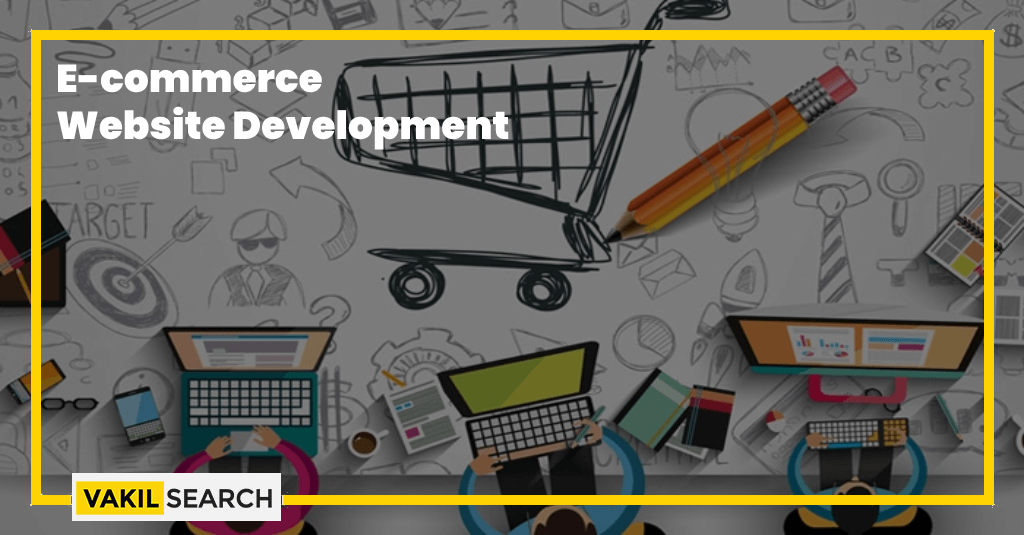Nowadays, businesses are getting more success on online platforms. Thus, it is important to customise each stage of eCommerce website development for your business.
Introduction:
E-commerce, short for electronic commerce, has revolutionized the way businesses operate and consumers shop. As technology continues to advance, the development of e-commerce has undergone several stages, each marked by unique challenges and opportunities. In this blog, we will explore the three primary stages of e-commerce development: Start-up & Fast Growth, Plateauing Growth or Consolidation, and Renewed Growth.
What is E-Commerce?
E-commerce refers to the buying and selling of goods and services over the internet. It involves electronic transactions conducted between businesses (B2B), between businesses and consumers (B2C), between consumers (C2C), or through government transactions (G2C). E-commerce platforms have become an integral part of modern business models, offering convenience, global reach, and accessibility to customers.
3 Stages of E-Commerce Development:
The stages involved in Ecommerce website development are stated below.
Stage 1: Start-up & Fast Growth
The first stage of e-commerce development is characterized by the emergence of innovative start-ups and rapid growth. During this phase, entrepreneurs and businesses identify new opportunities in the digital landscape and launch online ventures. Key features of this stage include:
- Market Entry: Start-ups venture into the e-commerce space, offering unique products or services and establishing their online presence.
- Rapid Expansion: Successful start-ups experience exponential growth, attracting investments and expanding their customer base.
- Technology Adoption: Businesses leverage evolving technologies to optimize their e-commerce platforms, enhance user experience, and streamline operations.
- Marketing and Customer Acquisition: Marketing strategies are focused on acquiring and retaining customers through various channels, including social media, email marketing, and search engine optimization.
- Challenges: Start-ups face challenges such as fierce competition, building brand credibility, logistics, and managing scalability.
Stage 2: Plateauing Growth or Consolidation
In the second stage, the e-commerce market matures, and growth stabilizes. Established players dominate the market, leading to a period of consolidation. Key aspects of this stage include:
- Market Saturation: The market reaches a saturation point, with intense competition and fewer opportunities for new entrants.
- Focus on Efficiency: Established e-commerce businesses shift their focus from rapid growth to optimizing efficiency, reducing costs, and improving customer service.
- Mergers and Acquisitions: Larger companies may acquire smaller ones to expand their market share and resources.
- Diversification: E-commerce businesses may diversify their product offerings or target new customer segments to sustain growth.
- Challenges: Businesses in this stage face challenges related to maintaining customer loyalty, managing inventory, and adapting to changing market trends.
Stage 3: Renewed Growth
The third stage marks a renewed period of growth and innovation in the e-commerce industry. Businesses that successfully navigate the consolidation phase emerge stronger and more adaptable. Key features of this stage include:
- Technological Advancements: Continued advancements in technology, such as artificial intelligence, virtual reality, and mobile commerce, drive innovation and reshape the e-commerce landscape.
- Global Expansion: E-commerce businesses explore opportunities in international markets, expanding their reach and customer base.
- Personalization and Customer Experience: Personalization becomes crucial in providing tailored shopping experiences, enhancing customer satisfaction and loyalty.
- Sustainability and Social Responsibility: E-commerce companies prioritize sustainable practices and social responsibility, aligning with the values of environmentally conscious consumers.
- Challenges: Despite renewed growth, businesses in this stage must address cybersecurity concerns, regulatory compliance, and the ever-changing demands of consumers.
FAQs:
1. What is E-Commerce Development?
E-commerce development refers to the process of creating and implementing online platforms that facilitate the buying and selling of goods and services over the Internet.
2. What are the Benefits of E-Commerce Development?
E-commerce development offers several benefits, including global reach, reduced overhead costs, convenience for customers, and the ability to operate 24/7.
3. Why is E-Commerce Development Important?
E-commerce development is essential for businesses to remain competitive in the digital age. It allows them to reach a wider audience, offer seamless customer experiences, and adapt to changing consumer preferences. E-commerce development also opens new revenue streams and opportunities for growth.
Conclusion:
The development of e-commerce has progressed through various stages, from the emergence of start-ups and fast growth to the consolidation phase and renewed growth. Each stage presents unique challenges and opportunities for businesses operating in the digital landscape. As technology continues to evolve, e-commerce is expected to further transform the way we shop, connect with businesses, and experience online transactions. Embracing innovation, customer-centricity, and sustainability will be key factors in the success of e-commerce businesses as they navigate the dynamic e-commerce ecosystem.
Also, Read:


